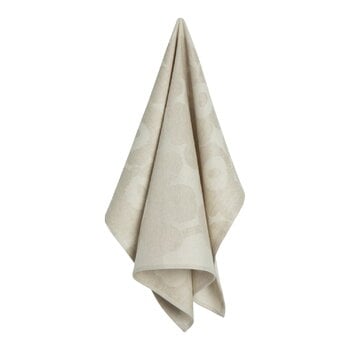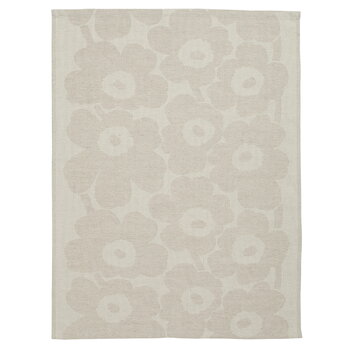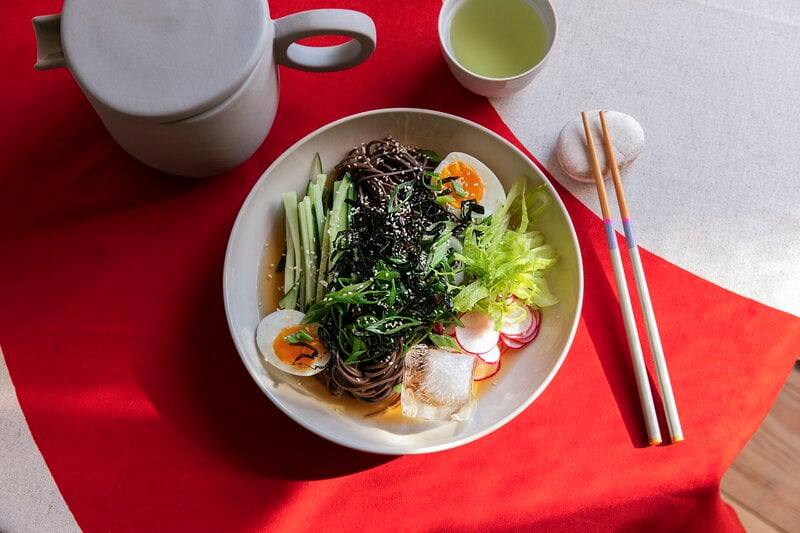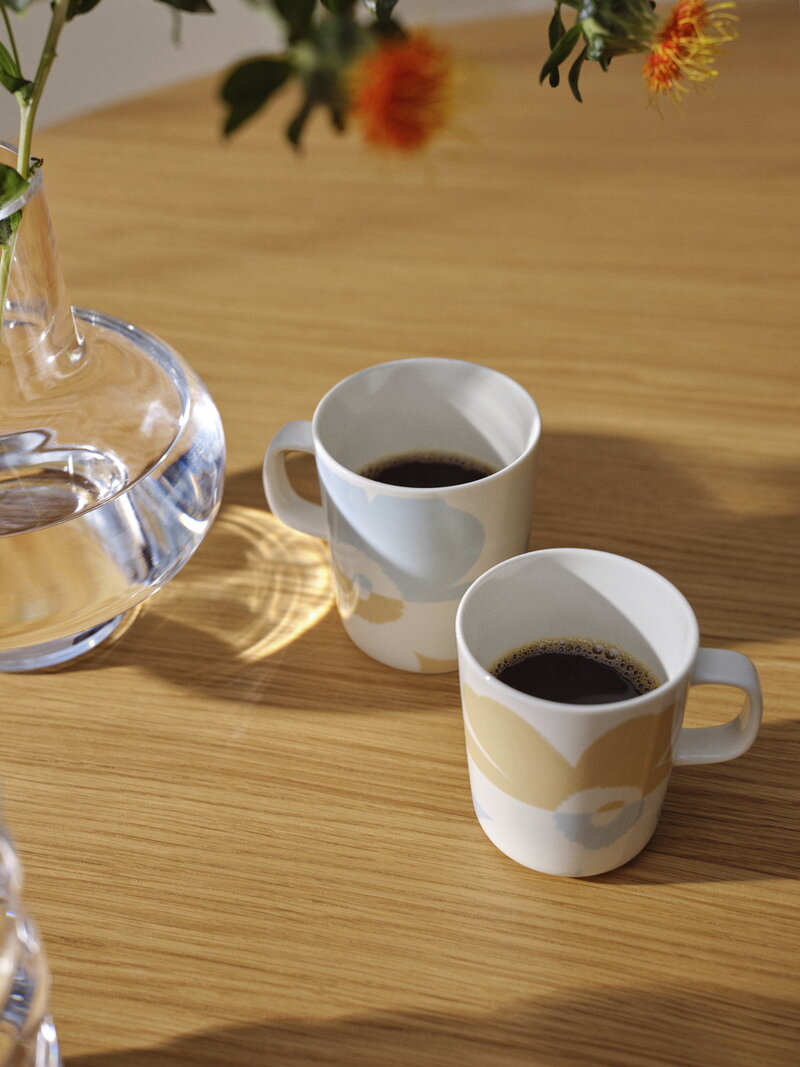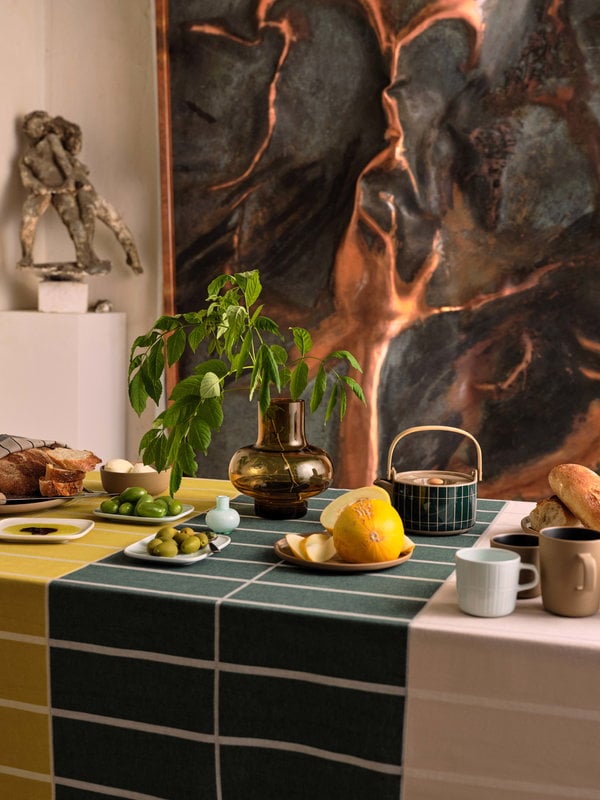Marimekko's Pieni Unikko kitchen towel adds the perfect finishing touch to your kitchen decor. Made of cotton linen, the tea towel measures 50 x 70 cm and features one of Marimekko's most beloved patterns, Unikko.
The Unikko pattern came about in 1964 after Armi Ratia, the founder of Marimekko, had announced in public that no floral fabrics are designed at Marimekko. Maija Isola did not accept rules or restrictions and designed in protest a complete collection of bold floral patterns: Unikko, a Finnish word that means poppy. Today, Unikko is one of Marimekko's best-known patterns and recognized around the world.

